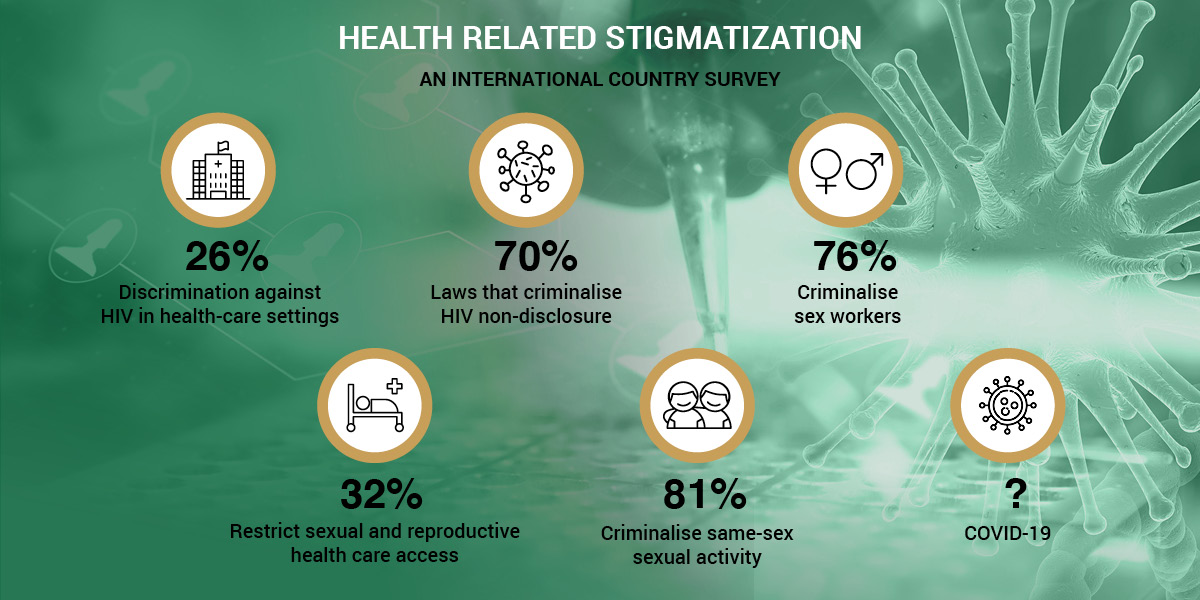Since the outbreak of the COVID-19 pandemic several Governments across Africa have instituted measures to contain and curb the spread of the virus. Of these measures, the most important have included the banning of social gatherings, the closure of national borders and national lockdowns. A natural human reaction to a crisis, such as the COVID-19 pandemic, is fear, which frequently results in narratives of the ‘other’ where blame and accusation is placed on others for the condition. The tendency of “othering” or playing the “blame game” creates social and societal discord, which may take the form of race, gender, ethnicity or xenophobia, depending on the context.
#C19ConflictMonitor: Several countries have experienced incidents of #stigmatisation and #discrimination against locals and foreigners suspected of being carriers of the virus, which manifested in physical assaults, verbal abuse and denial of service #COVID19
Tweet
As Governments take measures to stem the tide of the virus, ‘fences’, both figuratively and literally, are being erected. Information about the origins and spread of COVID-19 has resulted in situations where some of the measures to contain the virus have bred an unintended consequence of unlawful incidents of discrimination and hostility towards people of different identities, social standing, class and nationalities. In some parts of Africa, for instance, the virus had initially been regarded as a ‘foreign import’, spread either by visitors from Europe or Asia, or by wealthy locals who travelled to those regions and brought the virus home with them. Compared to other continents, in Africa, some of the verbal and physical acts of stigmatisation are unique only in that they are targeted at both groups that are usually seen as privileged or relatively affluent, as well as foreigners, especially from China.
Instances of prejudice, racial discrimination and the rise of anti-foreigner sentiments, as a result of blaming certain groups for the spread of COVID-19, have been noted in countries such as Ethiopia, Kenya, Nigeria, and South Africa. In Kenya a Member of Parliament (MP) was reported as having said that his constituency had the right to verbally abuse and physically threaten Chinese visitors who were not quarantined. It is such comments from authoritative figures that could mobilise ordinary citizens to become resentful towards the accused group or nationality and affirm their discriminatory actions. In Cameroon the Embassy of the United States of America (USA) issued a security alert that anti-foreigner sentiments were on the rise in major cities like Yaoundé and Douala over the COVID-19 outbreak. A similar alert was issued by the USA Embassy in Ethiopia, prompting the Ethiopian Prime Minister’s office to announce that COVID-19 is not related to any country or nationality. In South Africa a tourist bus in Johannesburg was repeatedly heckled with “corona, corona” shouts by locals.
Incidents of stigmatisation have not only been limited to direct physical and verbal attacks, but are also to be found on social media platforms – the global ‘misinfo-demic’. In this un-monitored online space numerous posts on Facebook and Twitter, for instance, abound with claims that the virus was imported from China. In South Africa narratives that the virus had been imported by “rich white people” have continued. As the World Health Organisation (WHO) warned that associating the virus with a specific geographic location fosters discriminatory stereotypes and conspiracy theories, and such sentiments fuel social tensions, especially in countries that already have existing social cleavages. The stigmatising attitude against China that COVID-19 generated during the initial outbreaks at the beginning of the year is unlikely to disappear and is currently exacerbated by reported discrimination against Nigerians in China, and the corresponding reactions from citizens across Africa.
Fear, lack of, and misinformation that lead to stigmatisation and discrimination may also impact negatively on national efforts, other than lockdowns, to slow the tide of COVID-19, as well as result in social tension. The case of protestors who, on 06 April destroyed a COVID-19 test site in Abidjan, Côte d’Ivoire, for fear that its location would expose them to the virus, is one example. Although the Ivorian government confirmed that the destroyed site was for ‘testing purposes’ rather than a ‘treatment centre’, the response by the citizens is indicative of the social tension and violence that may arise due to already pre-existing fears and prejudice about COVID-19. Abidjan is not unique in this case. In the Province of Limpopo, South Africa, concerns were expressed about the decision to locate quarantined citizens who had been evacuated from Wuhan, China. Incidents of attacks on health facilities and workers have also previously occurred in other African countries such as the Democratic Republic of Congo (DRC), and Liberia, during the height of the Ebola outbreaks. These incidents should serve as early-warning triggers for governments and other responders to the pandemic, that among other things, it is crucial to have effective engagement strategies with communities so as to dispel misinformation, provide facts about the decisions being made, thereby mitigating possible social tension and conflict.
Article by Senzo Ngubane, with Rumbi Matambo & Sibu Nkosi

